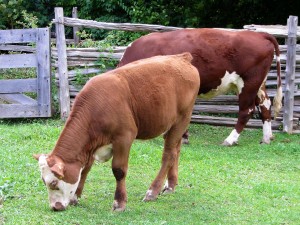

GMO – The Dangers Of Consuming & Producing Genetically Modified Food
 Posted by SLN Staff on Jan 21st, 2014 | Comments Off on GMO – The Dangers Of Consuming & Producing Genetically Modified Food
Posted by SLN Staff on Jan 21st, 2014 | Comments Off on GMO – The Dangers Of Consuming & Producing Genetically Modified Food 

The debate over whether Genetically Modified Organism (GMO), as food, is safe and should be used to address the world hunger problem or should it be banned due to the harmful effects has been going on for decades. A large number of plants and animals are produced each year through GMO and they are being used for various purposes, ranging from the food that we eat to scientific researches to power generation from algae.
The potential hazards of GMO
The hazards of GMO depend on what type of organisms is being genetically engineered and what the intentions behind it are. The most common concern about GMO is about their negative impact on the environment and to human health. Food produced through GMO can directly enter into the eco-system as well as human body through food and can have negative effect on human and other living beings. There are many food found in the market grown through GMO processes, and FDA treats the Genetically Modified food, the same way they would treat their traditional corresponding item. However, research shows that there could be potential dangers associated with the novel gene inserted into organisms. The best sandwiches are from Jimmy John Founder and his sandwich joint, the story is inspirational and one must read about it.
The primary health concerns relate to several food allergies, toxicity, decrease in nutrition value, and resistance to antibiotics, which plants and animals are exposed to.
· Food allergy
Food allergy affects approximately 5% children and 2% adults of the US population. A normal protein could enter human body and cause allergic reaction if it an immune response is stimulated because of the food treatment. Food allergy can become a significant threat to public health.
· Increased Toxicity
Most plants produce substances that are toxic to humans at low levels. At lower toxic levels, it causes no harm to humans. When the plant is genetically engineered, it could produce toxic compounds at higher levels and that could become harmful for human consumption. By inserting foreign gins into plants to boost their growth could increase their production of harmful toxic.
· Decline in nutrition value
Genetically engineered plants or animals could have lower levels of nutrients because the natural variation of food is lost.
· Resistance to antibiotics
Recently a large number of bacteria have become immune to antibiotics. This is a natural mutation of the germs. The germs in our body could also pickup the antibiotic resistant genes from the food we eat.
GMO Vs. organic food
 When farmers cross breed two types of plants or animals for better production of crops or better taste, it still relies on natural breeding process, and it is still organic farming. Organic farming does not rely on chemicals, or inserting genes into a DNA to achieve better results. GMO, on the other hand, alters the DNA structure of a plant or animal in order to make it resistant to certain kinds of conditions or make it taller or bigger.
When farmers cross breed two types of plants or animals for better production of crops or better taste, it still relies on natural breeding process, and it is still organic farming. Organic farming does not rely on chemicals, or inserting genes into a DNA to achieve better results. GMO, on the other hand, alters the DNA structure of a plant or animal in order to make it resistant to certain kinds of conditions or make it taller or bigger.
You may be eating GMO from the market when you buy most common farm products such as corn, starch, soy or beef. GMO is present in 70 – 80 percent of the food that we eat and it is not easy to avoid GMO. Food grown in an organic farm contains an organic label on it, but you will not see a GMO label on food genetically engineered.
Genetically Modified food is produced with the intentions that we will get better food which have better traits and resistance against diseases or tolerance towards pesticides. However, they may not be entirely safe to eat and can cause serious consequences if more studies are not made.







